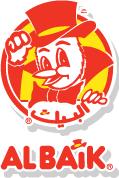For any business owner or leader out there; the moment of truth kinda of question could be the following one asked by Jim Collins (according to this HBR blog post):
If your company went out of business tomorrow, would anybody really miss it and why?
Although it’s a simple question, its answer contains the essence of the organization, its soul, and its whole purpose of being alive and competing in the market. If a leader or a number of executives failed to answer such question, then there must be something wrong!
[picapp align=”right” wrap=”true” link=”term=confused+woman&iid=5191135″ src=”http://view3.picapp.com/pictures.photo/image/5191135/close-young-woman-with-her/close-young-woman-with-her.jpg?size=500&imageId=5191135″ width=”234″ height=”234″ /]There are some interesting points the blog post is referring to in case a leader wants to know why his/her company should be missed. But let’s look at it from the other way around. Let’s see it through the eyes of you; the customer. Think for a moment of a company that you will be really missing if you heard now that it will be a history starting from tomorrow, and why would you miss it?
If you honestly answer this question, your answers will be almost the same as those mentioned in the HBR post, the answers that every business leaders should be aspiring to and working on having in his/her company.
Allow me to be the first to start … These are my choices:
- Starbucks: This is by far my most favorite brand in the world. You could even say that I am emotionally connected to it. Noting that I am neither a heavy coffee drinker nor someone who spend a lot of times in coffee shops. But I admire it because I feel that they care. They care about the quality of their products and the quality of the services they are providing.
- Sony: The Japanese electronic manufacturer will be my second choice. I trust whatever products they’re producing. Whenever I see Sony, I see high quality.
- P&G: Proctor & Gamble, the known FMCG manufacturer. There are no choices whenever that one of the products to be choosing from carries this company name. They have a vast range of brands under P&G, and they are all my first choices especially in Health & Well being and Household care categories.
Now, what are your favorite brands and why?


